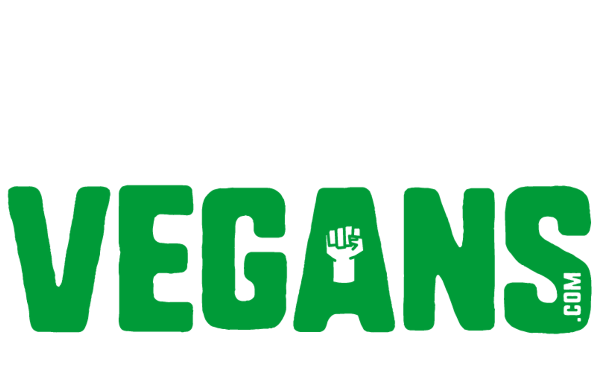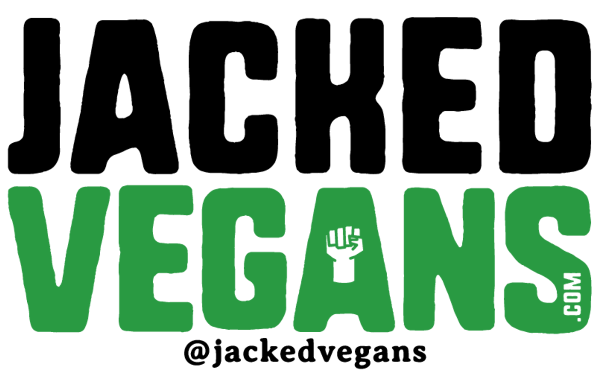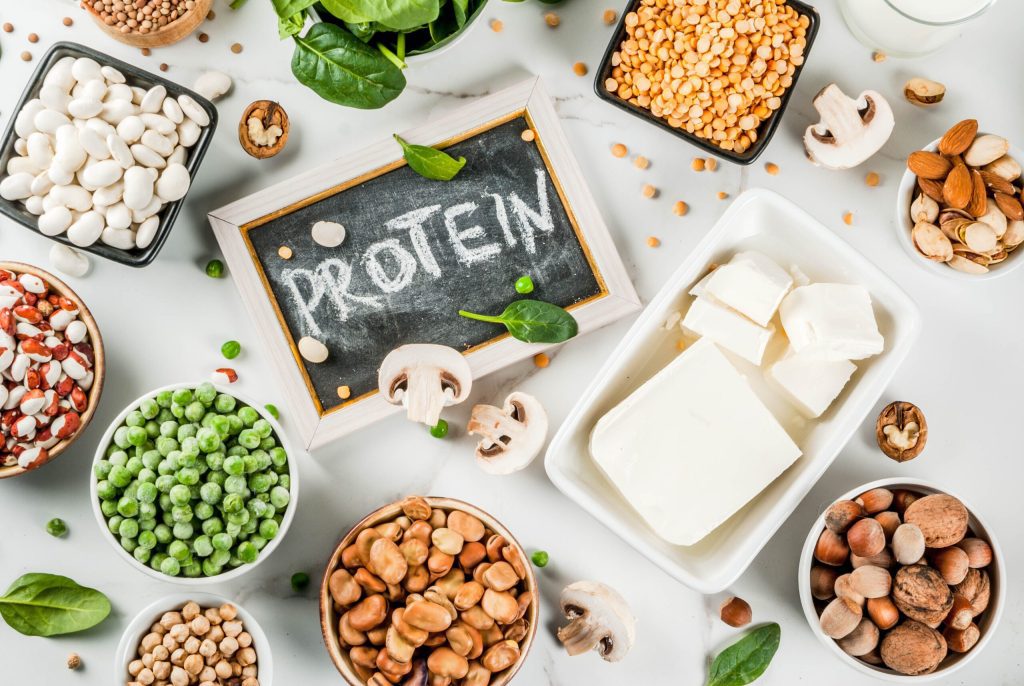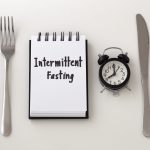One of the most common questions when considering a vegan diet is: How do vegans get enough protein? What is the best vegan protein source? And are there enough plant-based protein sources? These are valid and justifiable questions!
Protein is composed of amino acids which are considered the “Building blocks of life” because most reparation and building of tissues come from them. With inadequate amino acids, your body would fail to function at optimal capacity. As a result, it makes it hard to retain and put on muscle.
There are claims that Vegans can’t get enough protein because there are not enough plant-based protein sources. What an uneducated and ill-informed concept!
Vegans have a huge variety of tasty and healthy plant-based protein sources. In truth, some of which contain huge amounts of complete proteins that rival their meat counterparts.
WHAT ARE CONSIDERED “PLANT-BASED PROTEIN SOURCES”?
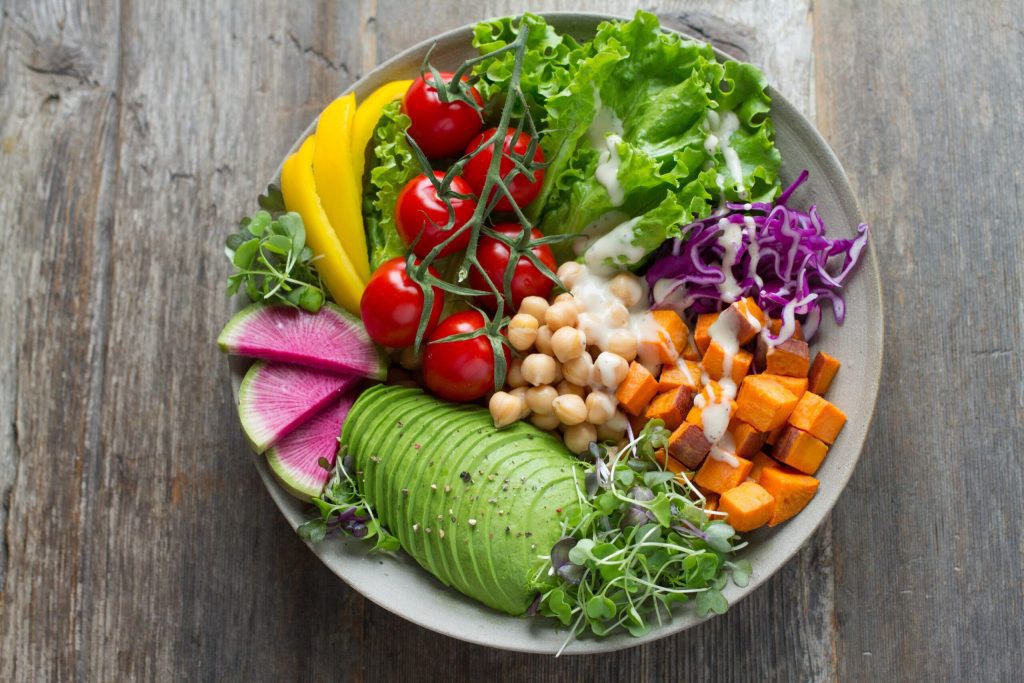
Photo by Anna Pelzer on Unsplash
There are a few areas to consider when selecting an appropriate plant-based protein source. Many individuals misconstrue a protein source from a fat source. For example, peanut butter is NOT a main protein source!
Yes, it has a healthy amount of protein to be considered a secondary intake. However, it’s not lean enough to be a pure protein selection.
In fact, it could be detrimental! Let’s say for meal 1 you need 25 grams of protein. The idea with achieving 25 grams is to still keep calories at a low to moderate level. Well, if peanut butter is your main protein selection during this meal, you would need three servings of it which is 600 calories and 48 grams of fat! What a terrible ratio! For convenience, we will focus on LEAN protein sources that are under 200 calories per 25 grams of protein.
The second consideration is to ensure an adequate variety of amino acid profile. Most vegan protein sources, however, don’t have a complete amino acid profile and lack some essential amino acids. It is important to consume various sources of protein, therefore, this list is broken down into two.
The first category is the main plant-based protein source for any given meal. The second category is a secondary plant-based protein source that supplements the same meal as a primary protein! This will ensure consumption from a plethora of sources and lead you to your best body composition results.
So, if you’re wondering to yourself “How can vegans get enough protein?” you’re in the right place as we dissect the option to adhere to on a vegan diet. While you’re here, check out this video where I talk about how vegans can boost their protein
Ok, now we’ve got the technicalities out of the way, let’s talk protein!
MAIN PLANT-BASED PROTEIN SOURCES
As previously mentioned, the protein sources listed are divided into separate categories. The foods in this section have lean origins, therefore can be considered the main source for any given meal. The second section is less lean, but can complement these foods to ensure a complete amino acid profile.
TEMPEH
If you’re looking for a heavy hitter when it comes to vegan protein sources, tempeh is for you. A 100g (3.5oz) serving packs a massive 19g of protein.
Tempeh is a traditional food from Indonesia which is made using fermented soybeans. Tempeh has become hugely popular as a tasty plant-based protein source since it goes well with all sorts of dishes.
Spaghetti spinach tempeh -Credit to M4rtine from Pixabay
It’s also high in calcium, iron, and other important minerals and vitamins. Make sure to include Tempeh in your diet and you’ll surely have no problem hitting your daily protein goals!
NUTRITIONAL YEAST
If you’re looking for the Rolls-Royce of vegan protein sources, then this is it. One-quarter cup (32g) of nutritional yeast contains over 8 grams of protein! Above all, I’m not talking just any old protein. Nutritional yeast offers all 9 essential amino acids, making it a complete protein.
How to use nutritional yeast in your food? Just think of it as a cheese substitute that can be used in practically any meal.
It’s also a great way of getting fiber and B vitamins into your diet!
TOFU
Did you know that you can make some of the best tasting meals with tofu? And a 100g (3.5oz) serving has 8g of protein!
Tofu is coagulated soy milk that has been pressed into a solid block. There are all sorts of different types of tofu, but the most common ones are silken, soft, firm, and extra-firm.
It’s not just the protein content in tofu that’s impressive. It’s also a great source of calcium, iron, and healthy fats.
Mapo Tofu – Credit to Frank Zhang from Pixabay
SEITAN
Seitan, also known as wheat gluten, is a food made from the main protein found in wheat grains. A 50g portion of seitan contains a mind-blowing 37g of protein! Therefore, making it one of the richest plant-based protein sources out there!
Seitan is perfect as a mean substitute since it goes well with vegan BBQ sauce, vegan wings sauce, breaded and fried with rice and veggies, and even in soup!
Protein isn’t the only benefit of eating seitan! It’s high in selenium, calcium, and iron, all of which are important minerals in a vegan diet.
Take note that seitan is not at all suitable for people with gluten sensitivity or celiac disease, since it’s made from gluten.
SPIRULINA
Spirulina has taken the vegan world by storm over the last few years, and it’s easy to see why. It’s a great vegan protein source with a long list of nutrients under its belt. With just one tablespoon (7g) of spirulina, you’ll be getting 4g of protein!
Spirulina is a micro-algae that’s found naturally in salt and freshwater.
As well as its protein benefits, spirulina is high in iron, copper, and vitamin B (1,2, and 3). It also contains the active compound phycocyanin which is a powerful antioxidant and anti-inflammatory.
PLANT-BASED PROTEIN POWDER
More and more vegan-friendly protein powders are popping up on the market, so adding a protein boost to your diet with a plant-based protein powder has never been easier.
Most plant-based protein powders contain 20+ grams of protein per serving and are usually made of rice, pea, quinoa, or seed protein.
Take protein shakes between meals, with breakfast, after a workout, or whenever you feel like it! Just make sure not to rely too much on them, as you should be getting a decent amount of protein in your meals every day.
If you’re looking for a healthy vegan protein source to start your day, check out this video:
MOCK MEAT PRODUCTS
Mock meats like the popular Beyond Meat burgers or certain Quorn products are an amazing way of getting high quality and seriously tasty protein into your meals.
Michael Wave from Pixabay
Mock meats are usually made from soy, wheat gluten, or other plant proteins and are especially popular among vegans that want to add some variety to their meals.
Take note, however, that eating too much of anything can be bad for you, and that, unfortunately, applies to some mock meats. While they’re made from plants and are high in protein, they’re often very high in sodium and sometimes contain lots of unhealthy oils. So just like with any food, eat mock meats in moderation.
SECONDARY PLANT-BASED PROTEIN SOURCES
In this section, we’ll be looking at foods that are not a main source of protein but do contain protein. Hence, that means that they should only be considered as a secondary protein source that gives your meal an extra protein kick in addition to your main protein source.
LENTILS
100g (3.5oz) of boiled lentils give you 9g of protein. They’re also high in fiber and are full of essential minerals like iron, magnesium, and potassium.
Lentils can be used in a massive range of dishes from salads to curry, and there is even lentil-based pasta on the market! If you’re on a tight budget, lentils are usually very cheap and are perfect for buying in bulk as they stay fresh for months when stored correctly!
Here’s how to make high protein lentils soup:
EDAMAME
Any good vegan diet should include a generous serving of Edamame once in a while! With 100g (3.5oz) of cooked edamame offering 11g of protein, it’s surely a great secondary protein source!
Photo by Curtis Thornton on Unsplash
Edamame is essentially baby soybeans in their pod and was mostly used in East Asian cuisine until a couple of decades ago. Now that vegan food has become more popular, it’s common to see them in salads, soups, Mexican fusion dishes, and in some creative presentations like edamame-based humus.
Edamame is full of vitamin C, iron, and magnesium, so there’s no excuse not to incorporate it into your vegan diet!
WILD RICE
You’ll probably never look at boring white or brown rice the same way once you hear about wild rice. Even the name is cooler! Even though it’s mainly a carb source, 100g (3.5oz) of cooked wild rice has over 4g of protein and contains fewer calories than brown rice.
It’s a little more expensive than regular rice, but it goes well with hearty winter dishes, salads, and thick soups.
Not only is wild rice a great secondary protein source, but it’s also a source of key nutrients like magnesium (over 40% of your daily intake!) and B vitamins.
KIDNEY BEANS
Raw kidney beans are an important carb source, but they also contain a significant amount of protein. A 100g (3.5oz) serving gives you 24g of healthy plant-based protein, while cooked kidney beans will contain about 9g.
At the same time, they go great in vegan chili dishes, salads, or as a side to the main meal, whichever way you decide to eat them,. Canned kidney beans are usually very cheap, so they’re one of the best budget-friendly options on this list!
In addition, kidney beans are low in fat and are a great source of magnesium and iron. What’s not to love about kidney beans?
BLACK BEANS
Most vegans eat a lot of black beans as a carb source, but they’re a good option as a secondary protein source. 100g (3.5oz) of cooked black beans contain up to 15g of protein!
Black beans are a versatile ingredient for plant-based diets, in addition to tasting great as part of almost any dish. Black beans go well as a side with vegan chili or mixed up in a pile of rice and veggies.
The zinc, calcium, and iron in beans make it one of the best ways to get your daily nutrients. It’s ideal as a regular ingredient on your shopping list and in your food!
BRUSSELS SPROUTS
Brussels sprouts are a bit of a “hate it or love it” kind of food, and their mainly a carb source, but their importance as a secondary protein source is undeniable! In fact, with 3g of protein for a one cup (88g) serving, it’s ideal for bumping up the protein content of any dish.
Photo by Cyrus Crossan on Unsplash
If the classic boiled sprouts aren’t your thing, then I don’t blame you. Try roasting them with garlic, salt & pepper, and a drizzle of olive oil to really bring out their hidden flavor.
Brussels sprouts are also famously high in vitamin C, containing over 140% of your recommended daily intake in a 100g serving.
HEMP SEEDS
A great addition to any meal is a sprinkling of hemp seeds. They’re mainly a healthy fat source, but a 2 tablespoon (20g) serving contains over 6g of protein!
Hemp seeds offer limitless possibilities for adding protein to your diet. For example, mixing them into oats, smoothies, and soups for a quick protein boost. Or try your hand at making hemp milk at home!
Hemp seeds are also a good source of nutrients like folate, zinc, and calcium.
CHIA SEEDS
Another healthy fat and carb source, but they’re an amazing vegan protein-booster, with 28g (1oz) providing almost 5g of protein!
These seeds have been used for generations in traditional Mexican dishes and in the southern USA, but their incredible health benefits make them popular for mixing into smoothies, oats, or even just adding to a bottle of water! They’re perfect for adding to all sorts of desserts, too.
They are also known as a good quality source of calcium, magnesium, and iron.
CHICKPEAS
Chickpeas should mainly be considered a carb source, but they’re also a good secondary source of vegan protein, with a 100g (3.5oz) portion of cooked chickpeas containing an impressive 9g of protein.
marekonline fra Pixabay
Indian food like curry often contains chickpeas or chickpea seeds, but they can also be added to soups, stews, salads, and even sauces!
Also, chickpeas are an amazing source of other nutrients. They’re very high in fiber, potassium, iron, magnesium, and B vitamins.
PEANUTS
Who doesn’t like munching on a bag of roasted or salted peanuts anyway? After all, this is the perfect excuse to finish off a bag by yourself. Peanuts are a healthy fat source, but they’re also high in protein with a 1oz (28g) serving containing 7g of protein!
If peanuts aren’t your thing, peanut butter is a great option too. 2 tablespoons of peanut butter contain over 8g of protein.
Peanuts and peanut butter can be used in all sorts of recipes, including sandwiches, on salads, desserts, smoothies, and in oats.
Just a small serving of peanuts or peanut butter also boosts your daily intake of magnesium and other important nutrients.
ALMONDS
Almonds are another healthy fat and plant-based protein sources, but a handful (about 20 almonds, or 28 grams) provide 6 grams of healthy protein, so you should try your best to incorporate them into your vegan diet!
They can be eaten raw, roasted, in desserts and smoothies, or in almond butter and almond milk, so there’s plenty of choice for adding them to your dishes!
It’s also an amazing source of vitamin E and magnesium!
OATS
Oats are tasty, filling, and are a great healthy carb source. They’re also fantastic secondary plant-based protein sources for vegans. A 40g portion of oatmeal has 7g of protein, and if you’re serving with almond milk and a scoop of peanut butter, you’ll surely have yourself a protein-dense breakfast that tastes amazing!
RitaE fra Pixabay
Oats can also be used in desserts, protein bars, and savory snacks, so you’re by no means limited to breakfast dishes.
Furthermore, oats are rich in magnesium, iron, and fiber!
QUINOA
Quinoa is an ancient grain from South America that’s long been a staple carb source for many people, but it’s become increasingly popular all over the planet as an easy-to-prepare alternative to rice and an amazing source of secondary protein for vegans. One 100g (3.5oz) serving of cooked quinoa contains 4.5g of protein!
Quinoa can also be used in savory and sweet foods, in salads, and is great for replacing rice in any dish!
It is also rich in fiber, manganese, copper, and zinc, all of which are vital for healthy bodily function.
SPELT
Spelt is often overlooked by the vegan community, but it’s an incredible source of carbs and a great secondary plant-based protein source. Half a cup (87g) provides 12.5g of protein!
Generally, the use of spelt dates all the way back to 5000 BC, and it continues to be an amazing source of nutrition for vegans. Use spelt in risotto, salads, homemade bread, porridge, cereals, and soups for a nutritional boost to your meal.
Spelt is also very rich in fiber, iron, magnesium, vitamin B-6, and potassium.
TEFF
Teff is another commonly ignored grain and carb source. However, it’s becoming gradually more popular as people see the benefits of adding it to their plant-based diet. In fact, teff is an important secondary plant-based protein source as a one-quarter cup (32g) contains 7 grams of protein!
A staple in Ethiopian cooking, teff can be used to make bread and pancakes, mixed into soup, casserole, or cereal. Furthermore, it can even be used to make vegan burgers!
However, the drawback to teff is that it can be hard to find. Your best bet is the health foods aisle of a large supermarket, specialist vegan stores, or online.
It’s also a good source of calcium, vitamin C, and fiber, thus, a fantastic addition to a vegan diet.
EZEKIEL BREAD
NatureFriend fra Pixabay
Bread made from sprouting grains like Ezekiel bread is known to be a good source of protein. In fact, two slices (about 68 grams) of Ezekiel bread contain about 8 grams of protein.
Although Ezekiel bread is primarily a source of carbs for vegans. However, it is also a complete source of vegan protein as it contains all 9 essential amino acids.
Combine Ezekiel bread with other plant-based protein sources like peanut butter and chia seeds and you’ll surely have a protein powerhouse in one sandwich!
VEGAN PROTEIN BARS
Protein bars are a convenient source of protein and are truly a fantastic snack if you’re craving something sweet.
Brands such as No Cow are dairy-free and contain about 19 grams of fiber, 20 grams of protein, 1 gram of sugar, but only about 190 calories per serving.
Rice and pea are the main plant-based protein source while they use stevia and monk fruit as sweeteners.
They are certified gluten free, non-GMO verified, and vegan.
PICK AND MIX YOUR PLANT-BASED PROTEIN OF CHOICE
In conclusion, with this impressive list of plant-based protein sources, vegans are not short on options.
If you’re already vegan, use this list to add some variety to your protein consumption.
If you’re only just thinking about going vegan, what are you waiting for? You’ll have enough protein to stay healthy and build all the muscle you want!
We’ve helped thousands of vegans shred fat, build muscle, and get the body they’ve always wanted.
How? With tailor-made meal plans, personalized workout routines, and regular 1 on 1 coaching calls.
If that sounds like something you could benefit from to finally get in shape and become a healthier person, apply to become a Jacked Vegan and I’ll get back to you soon!

